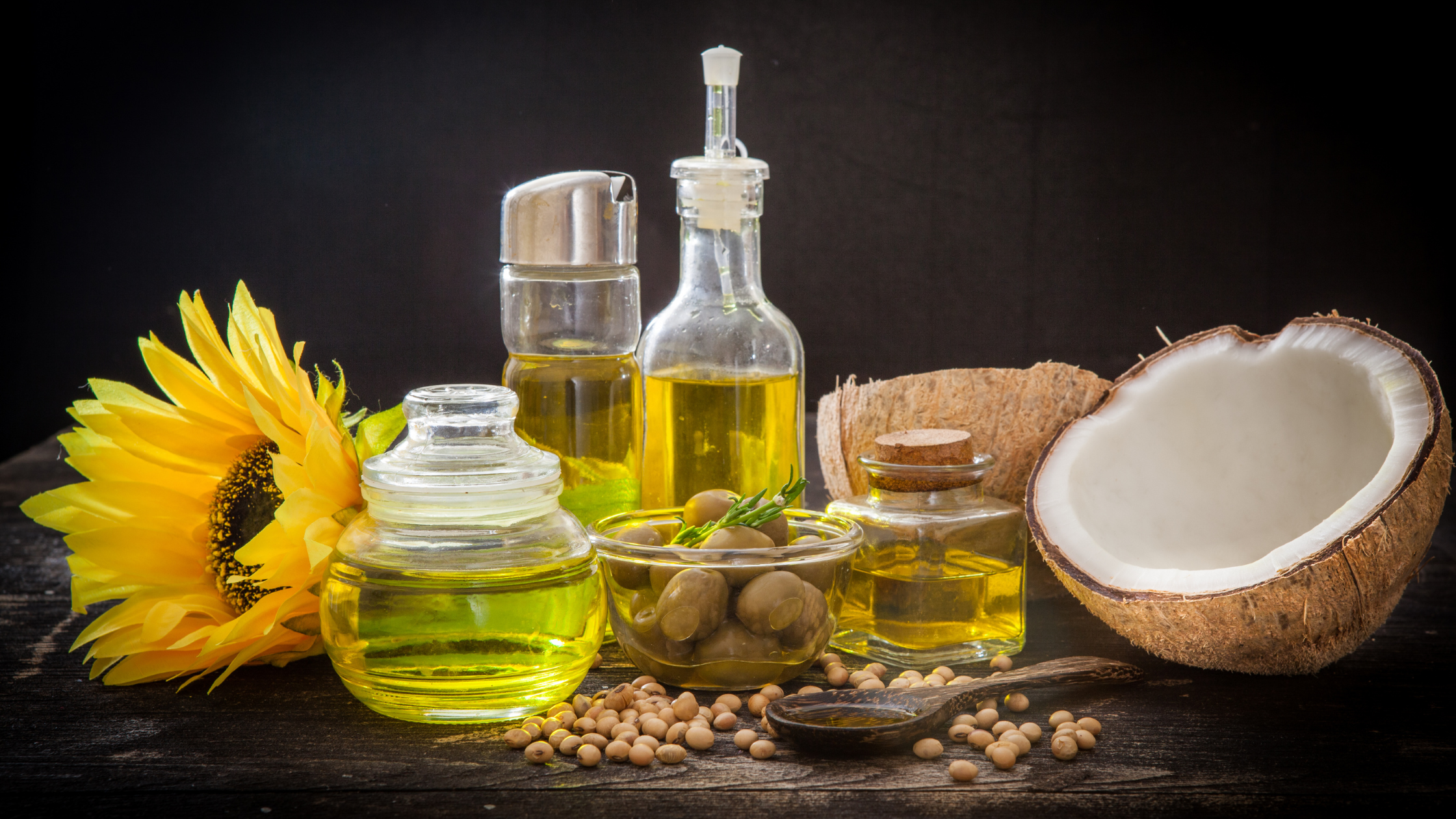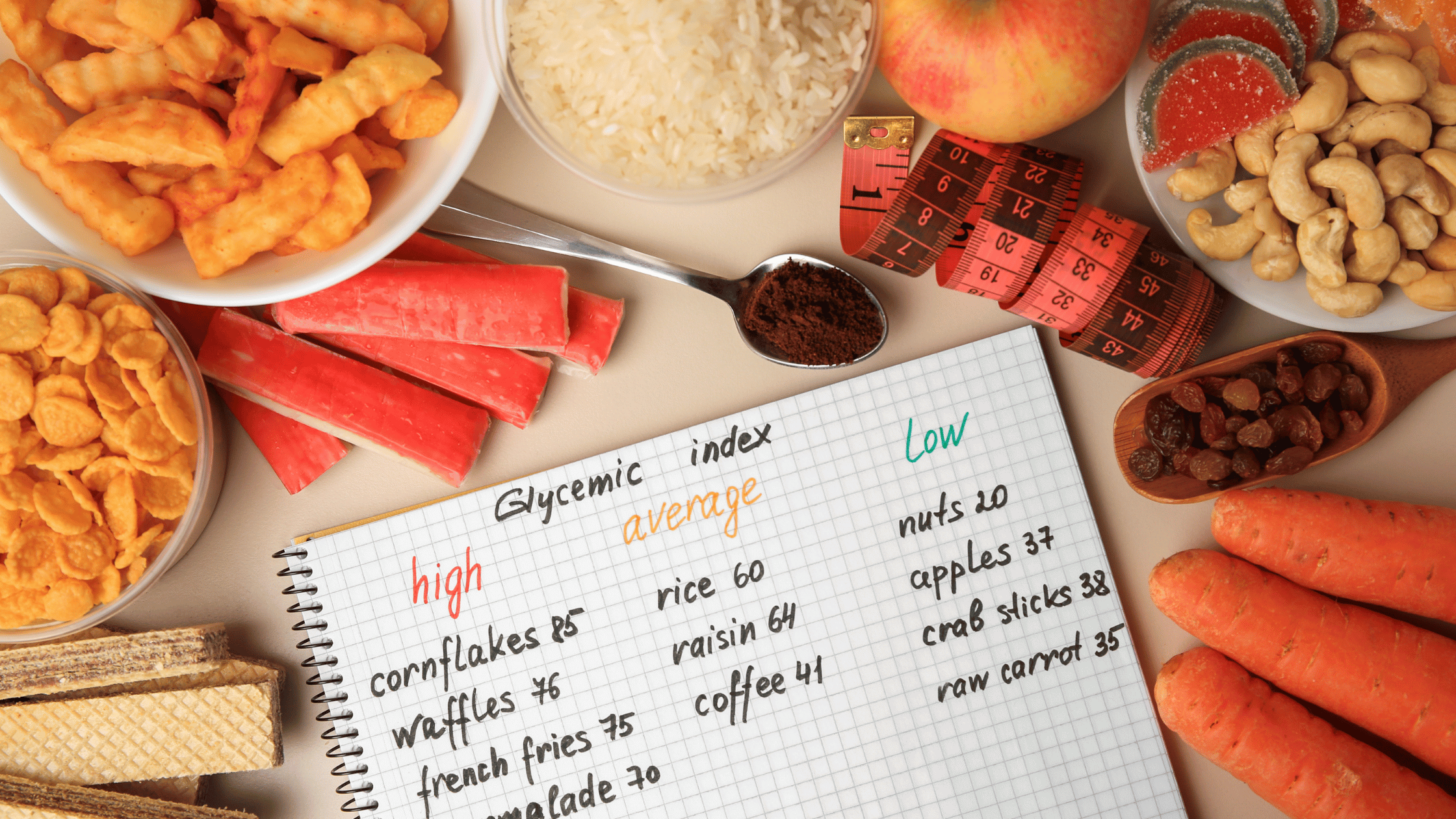Choosing the Right Oils: A Nutrigenomics Perspective

Selecting the right oil for cooking and meal preparation is a crucial aspect of maintaining a healthy diet. With the advent of nutrigenomics, which examines the interaction between our genes and nutrients, we can now make more personalised and informed choices. In this blog, we will explore how nutrigenomics can guide nutritionists and health coaches in recommending the appropriate oils based on their content of monounsaturated fats (MUFA), polyunsaturated fats (PUFA), and saturated fats (SF). Let's dive into the science and uncover the secrets of oil selection.
The general composition of oils can vary depending on the specific type of oil. However, here is a broad overview of the typical composition of oils in terms of monounsaturated fats (MUFA), polyunsaturated fats (PUFA), and saturated fats (SF):
1. Monounsaturated Fats (MUFA):
- Oils high in MUFA generally contain approximately 50-80% MUFA.
- Examples of high-MUFA oils include olive oil, avocado oil, and groundnut (peanut) oil.
2. Polyunsaturated Fats (PUFA):
- Oils high in PUFA generally contain approximately 40-70% PUFA.
- PUFA-rich oils include sunflower oil, safflower oil, soybean oil, corn oil, flaxseed oil, and fish oil.
3. Saturated Fats (SF):
- Oils high in SF generally contain approximately 10-25% SF.
- Coconut oil, palm oil, and palm kernel oil are examples of oils with higher SF content.
It's important to note that these values are general approximations, as the fatty acid composition can vary among different oil varieties and brands. Additionally, processing methods and growing conditions can also influence the composition of oils.
Understanding Nutrigenomics and Fatty Acids:
Nutrigenomics investigates how genetic variations influence our response to different dietary components, including fats. When it comes to oil selection, considering an individual's genetic profile can help identify which types of fats are most beneficial and how they should be incorporated into the diet.
Considerations for Choosing the Right Oil:
1. Monounsaturated Fats (MUFA):
Monounsaturated fats are considered heart-healthy fats that can have a positive impact on blood cholesterol levels and cardiovascular health (Schwingshackl & Hoffmann, 2020). Research has shown that incorporating MUFA-rich oils into the diet may reduce the risk of heart disease (Schwingshackl et al., 2017). Genetic variations may influence an individual's response to MUFA consumption (Mathias et al., 2018).
Recommended Oils Rich in MUFA:
Extra Virgin Olive Oil: EVOO is renowned for its high MUFA content, primarily oleic acid. It has been associated with numerous health benefits, including improved cardiovascular health and reduced inflammation (Schwingshackl & Hoffmann, 2020). EVOO is ideal for salad dressings and low to medium-heat cooking.
Avocado Oil: Avocado oil is another excellent source of MUFA. It has a mild flavour, a higher smoke point than EVOO, and can be used for various cooking methods, including sautéing and roasting.
Groundnut (Peanut) Oil: Groundnut oil is commonly used in Indian cuisine and is rich in MUFA. It has a relatively high smoke point, making it suitable for frying and deep-frying.
2. Polyunsaturated Fats (PUFA):
Polyunsaturated fats, specifically omega-3 and omega-6 fatty acids, are essential fats that the body cannot produce and must be obtained through the diet. Omega-3 fatty acids have been linked to numerous health benefits, including reduced inflammation and improved heart health (Del Gobbo et al., 2016). However, the conversion of alpha-linolenic acid (ALA) to the biologically active forms of omega-3 fatty acids can vary based on genetic variations, such as the FADS1 gene (Mathias et al., 2018).
Recommended Oils Rich in PUFA:
Flaxseed Oil: Flaxseed oil is rich in ALA, a plant-based omega-3 fatty acid. It can be beneficial for individuals with genetic variations impacting omega-3 metabolism. However, it should be stored properly and used in cold applications, such as dressings or drizzling over cooked dishes, as it has a low smoke point.
Fish Oil: Fish oil supplements are a concentrated source of omega-3 fatty acids, including eicosapentaenoic acid (EPA) and docosahexaenoic acid (DHA). These preformed omega-3s may be especially beneficial for individuals with genetic variations affecting ALA conversion (Mathias et al., 2018). Fish oil has been associated with improved heart health, brain function, and reduced inflammation (Kris-Etherton et al., 2002).
Rice Bran Oil: Rice bran oil is rich in PUFA and contains a good balance of omega-3 and omega-6 fatty acids. It has a high smoke point, making it suitable for various cooking methods, including stir-frying and deep-frying.
3. Saturated Fats (SF):
Saturated fats have been traditionally associated with increased risk of heart disease. However, emerging research suggests that the effects of saturated fats may vary depending on genetic factors (Smith et al., 2015). Individual genetic variations may influence how our bodies respond to saturated fats, and nutrigenomics can shed light on these personalised responses.
Recommended Oils Lower in SF:
Coconut Oil: Although coconut oil is high in saturated fat, it contains a unique composition of medium-chain triglycerides (MCTs). The effects of MCTs on health outcomes may differ from those of long-chain saturated fats, but more research is needed to fully understand their impact (Eyres et al., 2016).
Mustard Oil: Mustard oil, commonly used in Indian cuisine, contains a moderate amount of SF. It has a distinctive flavour and is often used for cooking, especially in stir-fries and pickles.
Table: Fatty Acid Composition of Commonly Used Oils & their health impact areas.
|
Oil |
MUFA Content |
PUFA Content |
SF Content |
Health Impact Areas |
|
Extra Virgin Olive Oil |
High |
Low |
Low |
Heart health, inflammation reduction |
|
Avocado Oil |
High |
Low |
Low |
Heart health, inflammation reduction |
|
Flaxseed Oil |
Low |
High |
Low |
Heart health, brain function, inflammation reduction |
|
Fish Oil |
Low |
High |
Low |
Heart health, brain function, inflammation reduction |
|
Coconut Oil |
Low |
Low |
High |
Controversial may impact cholesterol levels |
|
Canola Oil |
High |
Moderate |
Low |
Heart health, inflammation reduction |
|
Sunflower Oil |
High |
High |
Low |
Heart health, inflammation reduction |
|
Safflower Oil |
High |
High |
Low |
Heart health, inflammation reduction |
|
Soybean Oil |
Moderate |
High |
Low |
Heart health, inflammation reduction |
|
Corn Oil |
Moderate |
High |
Low |
Heart health, inflammation reduction |
|
Cottonseed Oil |
High |
Moderate |
Moderate |
Heart health, cholesterol levels |
|
Groundnut Oil |
High |
Moderate |
Low |
Heart health, inflammation reduction |
|
Mustard Oil |
High |
Moderate |
High |
Heart health, inflammation reduction |
|
Rice Bran Oil |
High |
Moderate |
Low |
Heart health, cholesterol levels, inflammation reduction |
|
Sesame Oil |
High |
High |
Low |
Heart health, inflammation reduction |
Note: The fatty acid composition may vary slightly based on factors such as processing methods and growing conditions.
Incorporating nutrigenomics into oil selection empowers nutritionists and health coaches to provide personalised recommendations based on an individual's genetic profile. Understanding the impact of genetic variations on the metabolism of MUFA, PUFA, and saturated fats allows for a more tailored approach to dietary guidance. By recommending MUFA-rich oils like extra virgin olive oil, avocado oil, and groundnut oil, PUFA sources such as flaxseed oil, fish oil, and rice bran oil, based on an individual's genetic predisposition, can help optimise health outcomes and support cardiovascular health. Additionally, considering the use of coconut oil and mustard oil, which contain different levels of saturated fats, can provide further personalised guidance. Embracing the power of nutrigenomics in oil selection is an exciting avenue for enhancing personalised nutrition guidance.
References:
U.S. Department of Agriculture, Agricultural Research Service. (2019). FoodData Central.
Schwingshackl, L., & Hoffmann, G. (2020). Monounsaturated fatty acids, olive oil and health status: A systematic review and meta-analysis of cohort studies. Lipids in Health and Disease, 19(1), 95.
Schwingshackl, L., Lampousi, A. M., Portillo, M. P., Romaguera, D., Hoffmann, G., Boeing, H., & Manios, Y. (2017). Olive oil in the prevention and management of type 2 diabetes mellitus: A systematic review and meta-analysis of cohort studies and intervention trials. Nutrition and Diabetes, 7(4), e262.
Mathias, R. A., Pani, V., Chilton, F. H., & Genetic Epidemiology of Asthma in Costa Rica (GACRS) investigators. (2018). FADS genetic variants and omega-6 polyunsaturated fatty acid metabolism in a homogeneous island population. Journal of Lipid Research, 59(1), 49-55.
Del Gobbo, L. C., Imamura, F., Aslibekyan, S., Marklund, M., Michaelson, K., Muzaffar, A.,... & Chiuve, S. E. (2016). ω-3 polyunsaturated fatty acid biomarkers and coronary heart disease: Pooling project of 19 cohort studies. JAMA Internal Medicine, 176(8), 1155-1166.
Kris-Etherton, P. M., Harris, W. S., & Appel, L. J. (2002). Fish consumption, fish oil, omega-3 fatty acids, and cardiovascular disease. Circulation, 106(21), 2747-2757.
Smith, C. E., Ngwa, J., Tanaka, T., Qi, Q., Wojczynski, M. K., Lemaitre, R. N.,... & Province, M. A. (2015). Lipoprotein receptor-related protein 1 variants and dietary fatty acids: Meta-analysis of European origin and African American studies. International Journal of Obesity, 39(3), 472-477.

The Gene Box











.png)



















































